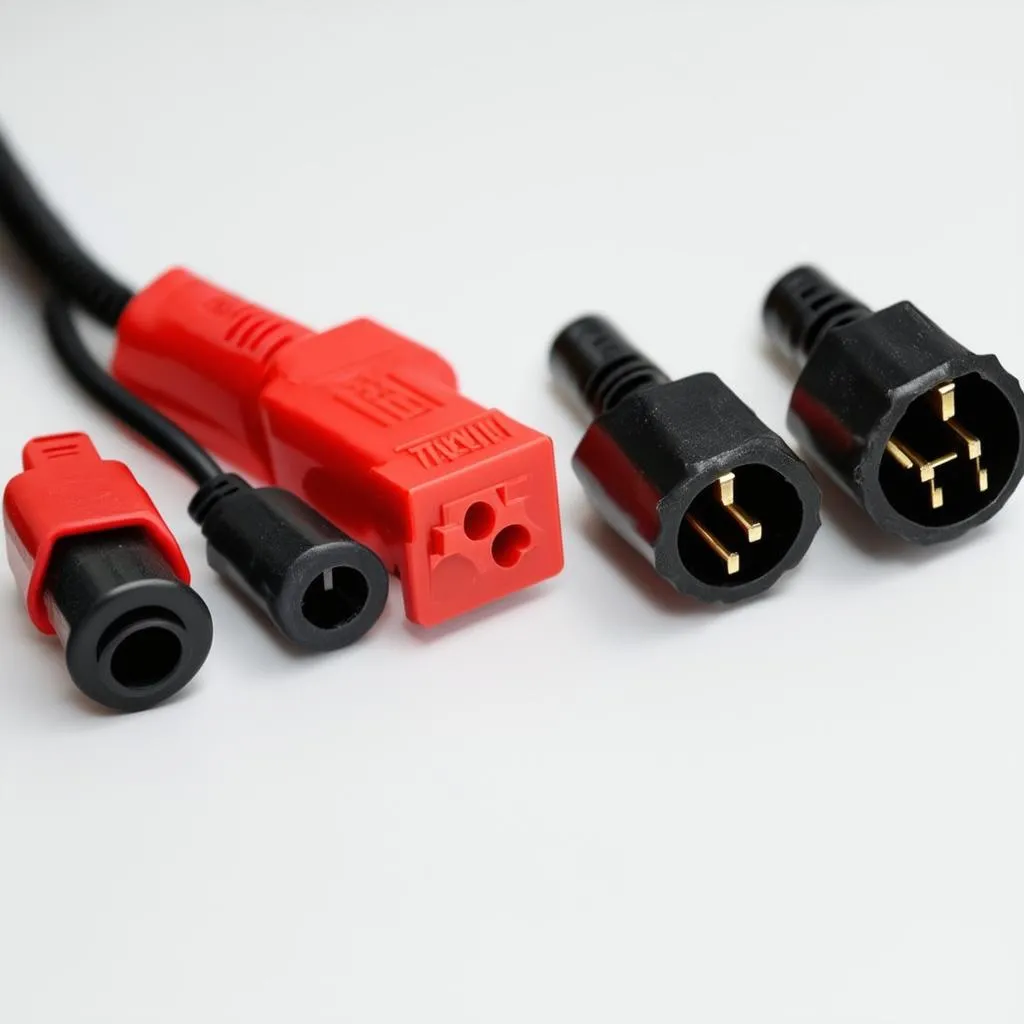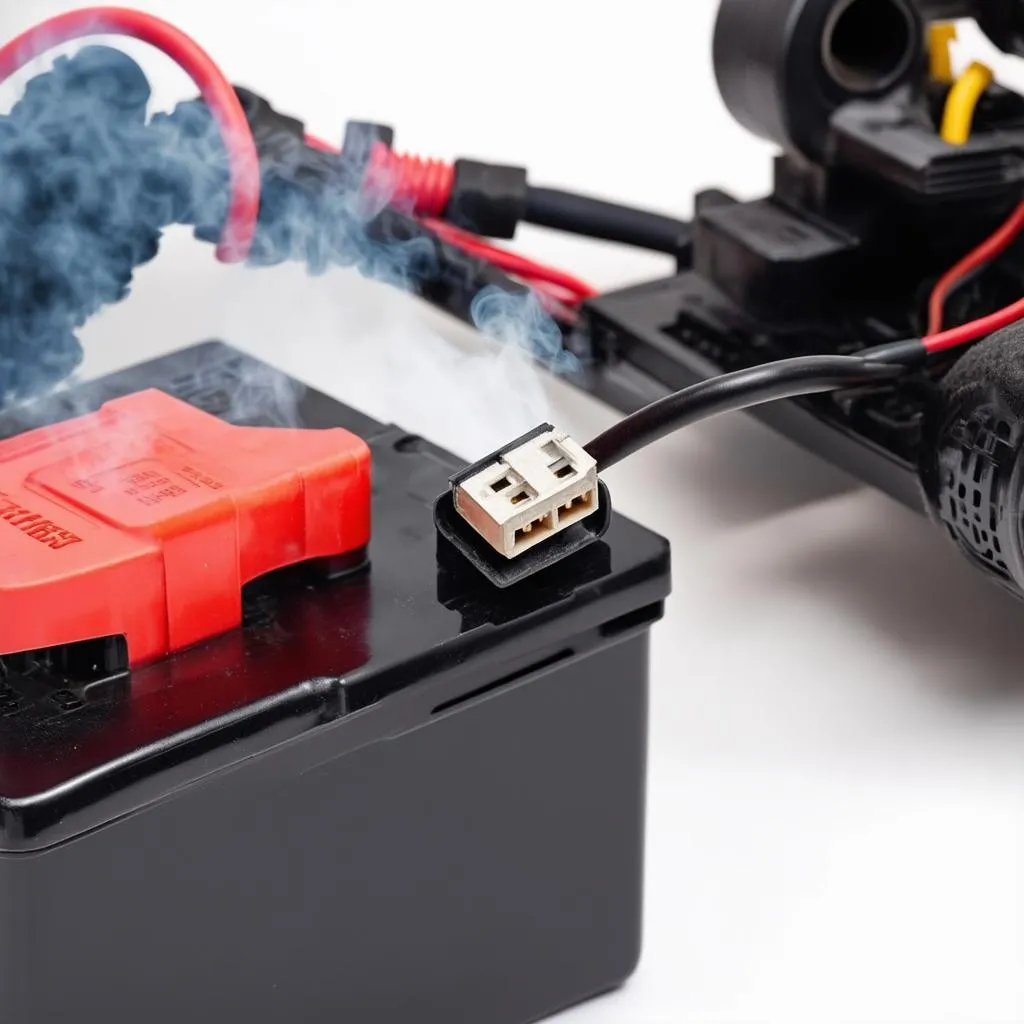RC Car Battery Plug Types: A Guide to Finding the Perfect Connection
Picture this: You’re all set for an epic RC car racing session with your buddies. The track is prepped, the adrenaline is pumping, and you’re ready to unleash your inner speed demon. But wait! Your car battery’s connector doesn’t fit the charger! Frustration sets in. We’ve all been there.
Choosing the right RC battery plug type is crucial for a smooth and enjoyable experience. Whether you’re a seasoned racer or just starting, this guide will help you navigate the world of RC battery connectors like a pro.
Decoding the RC Battery Plug Landscape
Before we dive into the specifics, let’s understand why these plugs are so important.
From a mechanic’s perspective, the battery connector is the lifeline of your RC car. It’s responsible for delivering the juice needed to power those high-performance motors and keep your car zipping across the track.
From an electrical standpoint, each connector type is designed to handle specific voltage and amperage limits. Using an incompatible plug can lead to overheating, damage to your battery and car, or even a fire hazard.
Economically speaking, investing in the right connectors from the get-go can save you from costly replacements and repairs down the line. Imagine constantly needing new batteries because of faulty connections – not a fun way to spend your hard-earned cash!
The RC Battery Connector Hall of Fame
There are a plethora of RC battery plug types available, but some of the most popular include:
Tamiya Connectors:
Often found on entry-level RC cars and battery packs, Tamiya connectors are known for their simplicity and affordability. However, they aren’t the most efficient for high-power applications.
Deans Connectors:
A step up from Tamiya, Deans connectors are a favorite among hobbyists thanks to their superior current handling capabilities and durability. These connectors are a common sight at RC car races.
XT60 Connectors:
Originally designed for the drone industry, XT60 connectors have quickly gained popularity in the RC car world. They offer a balance of high current capacity, reliability, and ease of use.
EC3 Connectors:
Another popular choice for high-performance RC cars, EC3 connectors provide a secure and efficient connection for demanding applications.
Traxxas Connectors:
Designed specifically for Traxxas vehicles, these connectors offer a proprietary design known for their robustness and high-power handling. However, they limit you to using Traxxas-compatible batteries and chargers.
 RC car battery plugs
RC car battery plugs
Finding Your Perfect Match: Choosing the Right Connector
With so many options, how do you choose the right connector for your RC car?
Consider your RC car’s power demands. Entry-level cars might work fine with Tamiya connectors, while high-performance models would benefit from the superior current handling of Deans, XT60, or EC3 connectors.
Check your charger’s compatibility. Ensure that your charger supports the connector type you choose.
Think about future upgrades. If you plan on upgrading your RC car or battery in the future, opt for a connector type that can accommodate higher power requirements.
Don’t be afraid to seek expert advice. Local hobby shops or online forums can offer valuable insights and recommendations based on your specific needs.
Troubleshooting Common Connector Conundrums
Encountering issues with your RC battery connectors? Here are some solutions to common problems:
Loose Connection: Ensure the connectors are properly plugged in and secured. If they still feel loose, the connectors might be worn out and need replacing.
Overheating Connectors: This usually indicates excessive resistance. Check for damaged connectors, dirt, or debris obstructing the connection. Using a connector not rated for your car’s power output can also cause overheating.
Melting Connectors: A sure sign of a serious issue, melting connectors point towards excessive current flow. Immediately discontinue use and inspect your battery, charger, and connectors for any damage or incompatibility.
 Overheating RC car battery
Overheating RC car battery
Beyond the Basics: Frequently Asked Questions
Q: Can I change the connector type on my RC car battery?
A: Yes, but it requires basic soldering skills and knowledge of electrical polarity. If you’re unsure, it’s always best to consult an experienced hobbyist or technician.
Q: Are certain connector types better suited for specific RC car categories (on-road, off-road, etc.)?
A: Not necessarily, the choice depends more on the power requirements of your specific car model rather than its category.
Q: How often should I replace my RC car battery connectors?
A: It depends on usage and maintenance. Regularly inspect your connectors for wear and tear, and replace them if you notice any damage, looseness, or signs of overheating.
Q: What are some safety tips for handling RC car battery connectors?
A: Always connect and disconnect batteries in a well-ventilated area. Never touch the metal parts of the connectors while the battery is connected. Store batteries and connectors properly to avoid short circuits.
Rev Up Your RC Experience
Choosing the right RC car battery plug type might seem like a small detail, but it can significantly impact your overall enjoyment and the longevity of your equipment. By understanding the different connector types, their pros and cons, and common troubleshooting tips, you can ensure a smooth, safe, and electrifying RC experience every time you hit the track.
Need help with other car diagnostics issues like choosing the right BMW charging battery or understanding BMW 528i spark plugs? Check out our other informative articles on Car Diag Xpert.
For personalized assistance with diagnostics tools, don’t hesitate to contact our automotive experts via Whatsapp at +84767531508. We’re available 24/7 to help you get back on track!
